Product Development ⅡDepartment
YANMAR S.P. CO., LTD.
YANMAR Technical Review
Business of Yanmar S.P.
1.Introduction
Yanmar S.P. Co. Ltd (hereinafter referred to as “YSP”) will next year celebrate its 40th anniversary, having commenced the operations as part of the former Yanmar Diesel in July 1978 at its current location, producing horizontal water-cooled engines in Southeast Asia through a joint venture with a local capital (S.P. International). After operating for many years as a manufacturer of horizontal water-cooled engines, the business was relaunched as YSP in 2011 following a merger with YAMT, Yanmar's agricultural machinery business subsidiary company in Thailand. It also commenced tractor production at the same time with the construction of a second factory dedicated to tractor production at an adjacent location. With the addition of a construction machinery division in 2014 and the commencement of sales of 5t-class back hoes in Thailand, the company now operates a diverse business that encompasses engines, agricultural machinery, and construction machinery (see Fig. 1).
Along with the recent expansion of the Yanmar's agricultural machinery business in Southeast Asia, the company has also expanded its range of machinery business for rice cultivation, with the commencement of production and sales of power tillers ST-A1 for Thailand and neighboring countries (Cambodia, Laos, and Myanmar) in 2014, and sales in Thailand of ride-on rice transplanters made by YNC and multi-purpose type combine harvesters in 2015.
During 2017, YSP embarked on the production and sales of Yanmar-branded sugarcane harvesters first in the world and also commenced sales of tractors made by ITL of India under the Solis brand.
Having become the base for the supply of tractors to Southeast Asia from 2015, YSP has become an increasingly important part of the Asian operations of the Yanmar's agricultural machinery business.
Company Profile
- Products
- Factory 1: Horizontal water-cooled engines, power tillers, rotaries
Factory 2: Tractors (EF393T, EF514T, EF725T) - Imports
- Combine harvesters, rice transplanters, Solis tractors made by ITL (26, 95, 110PS)
Back hoes, industrial engines - Location
- Ladkrabang Industrial Estate, East Bangkok, approximately 17km northeast of Suvarnabhumi Airport, the international gateway to Kingdom of Thailand, and approximately 30km from central Bangkok.
- Site area
- 82,000 m2 (Factory 1: 10,080 m2, Factory 2: 12,800 m2)
- Employees
- 650 (approx.)
Small Engine

Power Tiller

Tractor

Implement

Rice Transplanter

Combine Harvester

Sugarcane Harvester

Compact Equipment

Industrial Engine

Fig 1. YSP Products
2.Overview of Thai Market
Thailand is made up of four regions (see Fig. 2). While rice is the staple crop, other forms of cropping, including cassava, sugarcane, and corn are encouraged depending on regional field conditions and weather characteristics, and planted area of these crops have increased in recent times (see Table 1).
Meanwhile, because of rising incomes and the fall in the agricultural workforce due to industrialization, main selling products have shifted from power tillers to tractors, with tractors having become the mainstream in recent years (see Table 2).

Table 1. Cultivation calendar of major crop in Thailand

Table 2. Index of Thailand

3.YSP's R&D Work
In addition to its work on new product development and managing mass produced product based on YSP's medium-term business plan, YSP's Research & Development Division also assists development work in Japan by researching the relevant laws, regulations, and standards in Thailand. It also engages in new market development, seeking to build relationships with universities and national institutions in Thailand.
The Research & Development Division is broadly divided into product development department and testing department, with the following main R&D responsibilities.
(1) Quality verification and assessment for YSP products, management of mass produced product (working under contract to Yanmar's development division in Japan)
(2) Technical evaluation of implements made by Thai manufacturers
(3) Testing and evaluation of the adaptability of imported products for local conditions
(4) Checking and advising on technical documents translated into the Thai language
(5) Researching the relevant laws, regulations, and standards in Thailand, as required for development work
4.Conclusions
The Kingdom of Thailand has embarked on an economic model called “Thailand 4.0” that seeks to raise incomes by increasing the value of the primary industrial products in which Thailand excels. This is not only limited to mechanization but also aims to improve added value through the adoption of information technology. So, YSP is committed to expanding its range of machinery for upland farming so that it too can help improve the incomes of its customers in Thailand and neighboring countries.
-IMPORTANT-
The original technical report is written in Japanese.
This document was translated by Research & Development Management Division.
Author


 Agriculture
Agriculture
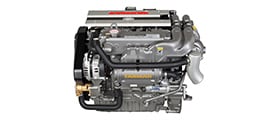 Recreational Marine
Recreational Marine
 Recreational Boat
Recreational Boat
 Premium Cruiser
Premium Cruiser
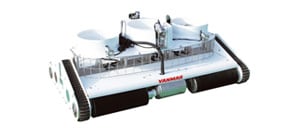 Marine Equipment
Marine Equipment
 Marine Commercial
Marine Commercial
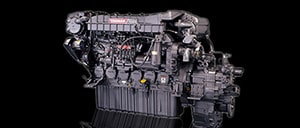 Propulsion Engines (High Speed)
Propulsion Engines (High Speed)
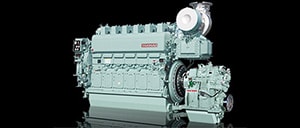 Propulsion Engines (Medium Speed)
Propulsion Engines (Medium Speed)
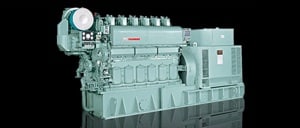 Auxiliary Engines
Auxiliary Engines
 SCR System
SCR System
 Dual Fuel Engine
Dual Fuel Engine
 Two-stage Turbocharging System
Two-stage Turbocharging System
 Electric Propulsion System
Electric Propulsion System
 Energy Systems
Energy Systems
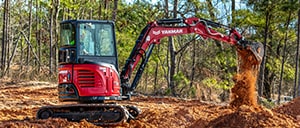 Compact Equipment
Compact Equipment
 Industrial Engine
Industrial Engine
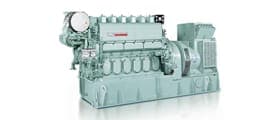 Power Generation
Power Generation
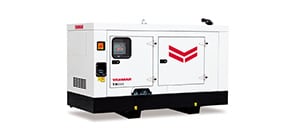 Compact Power Products
Compact Power Products